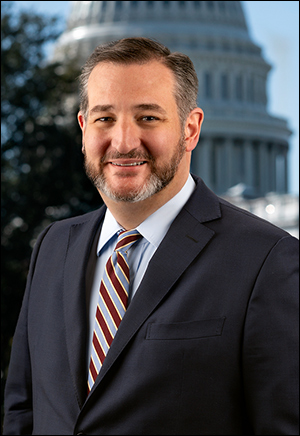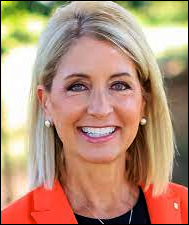By Jim Ellis — Wednesday, Dec. 14, 2022
President
Texas: Cruz Polling Up for Renomination, Down for President — According to a Texas-based Republican pollster, Sen. Ted Cruz is in strong shape among prospective GOP primary voters for renomination, but not for a presidential campaign. The CWS Research firm recently conducted a Texas poll (Nov. 8-29; 860 likely Texas 2024 Republican primary voters; interactive voice response system and online) and finds the senator posting a strong 81 percent renomination score, but only records three percent support for another presidential bid.The CWS poll leader is former President Donald Trump at 37 percent preference with Florida Gov. Ron DeSantis following closely with 34 percent. Former Vice President Mike Pence and ex-UN Ambassador and South Carolina Gov. Nikki Haley also finish slightly ahead of Sen. Cruz in his home state. Pence draws five percent backing and Haley four percent, as compared to Sen. Cruz’s three percent.
Senate
Arizona: Dem Primary Could Be Competitive — Apparently Rep. Ruben Gallego (D-Phoenix) is not the only Arizona Democratic congressman considering a run for the Senate. According to a report from the Daily Kos Elections site, Rep. Greg Stanton (D-Phoenix) — who served six years as mayor of Phoenix and nine years on the Phoenix City Council before being elected to the US House in 2018 — has conducted a statewide US Senate poll. If he were to run in what would now be an open US Senate Democratic primary since new Independent incumbent Sen. Kyrsten Sinema will advance directly into the general election, a tough battle would develop in an August 2024 primary between the two Phoenix-based congressional Democrats.
Rep. Stanton was re-elected in November with a 56-44 percent margin against a credible Republican, businessman Kelly Cooper. This, after his district was changed from a D+15 to a D+1 rating according to the FiveThirtyEight data organization calculations, meaning he rather impressively exceeded expectations.
House
VA-4: Special Election Scheduled — Gov. Glenn Youngkin (R) has surprisingly scheduled the special congressional election to replace the late Rep. Donald McEachin (D-Richmond) for Feb. 21. With Democrats certain to hold this seat in the special election, it was thought Gov. Youngkin would delay a bit longer, possibly to early April, in order to give the Republicans a further one-seat edge in the House party division count.
With the Feb. 21 general election date that will fast approach, the political parties must quickly assemble and determine how their nominees will be chosen. At this point, their realistic options are to nominate in a special district convention or hold a “firehouse primary,” that is an election with very few polling places around the district.
The Democratic nomination will be the contest to watch, since the 4th District is rated as D+30. At this point, state Sen. Jennifer McClellan (D-Richmond) and Delegate Lamont Bagby (D-Richmond) have announced their intention to file as candidates. For the Republicans, two-time nominee Leon Benjamin and insurance agent and frequent candidate Ron Wallace have declared that they will run.
Governor
Indiana: Sen. Braun Announces — First-term Hoosier State Sen. Mike Braun (R) made his obvious intentions to run for governor official Monday with his formal announcement. He will be a strong favorite for the Republican nomination, which gives him the inside track in the general election.
There is a good possibility that his Democratic opponent will be former US senator and current Ambassador to the Holy See, Joe Donnelly. The Holy See is the government of the Roman Catholic Church, which is led by the Pope in his role as the bishop of Rome. Ironically, this would set a re-match between the two men of the 2018 Senate race, a campaign that Sen. Braun won with a 51-45 percent victory margin. The Braun announcement now sets into motion a competitive Senate campaign that will likely feature a crowded Republican primary.








